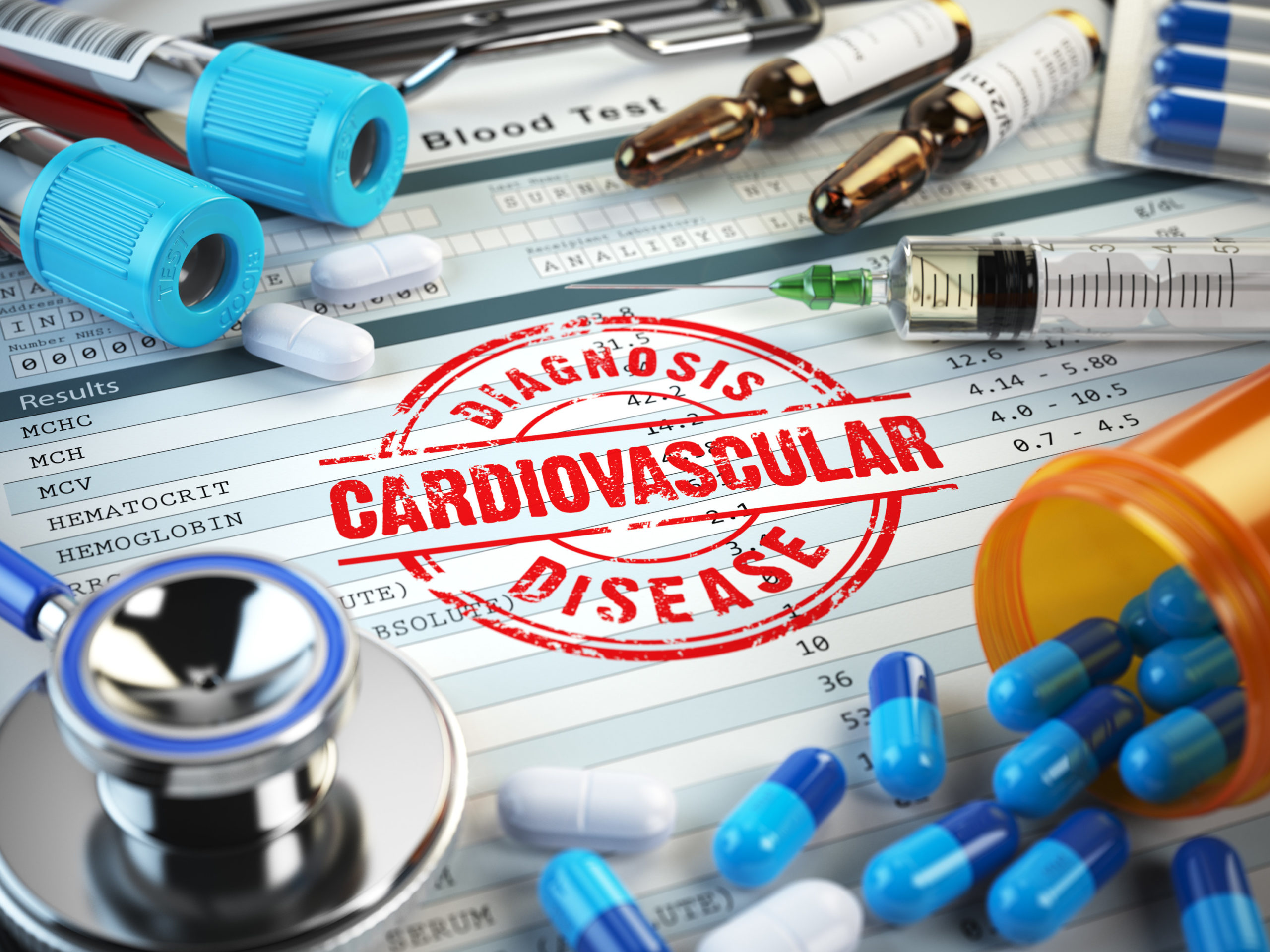The six types of cardiovascular disease you need to know about
Statistics compiled by the American Heart Association show that 48% of Americans have some type of cardiovascular disease. This doesn’t mean that nearly half of America has the same condition. There are many different types of conditions that fall under the umbrella of cardiovascular disease. Here are the six most common causes and their symptoms.
Atherosclerosis
Atherosclerosis is the most common cause of cardiovascular disease. This buildup of fatty plaque in the arteries can thicken and stiffen the walls of the arteries. The blood flow is restricted by this build-up and less blood is pumped to the body’s organ and tissues. Symptoms of this condition include chest pain or tightness, shortness of breath and pain or numb feeling in the arms or legs. Pain might also be felt in the neck, jaw, throat, back or upper abdomen. This condition is usually caused by preventable problems like being overweight, sedentary, smoking or having a poor diet.
Arrhythmia
An abnormal heart beat is known as arrhythmia. The heart may beat too fast, too slow or be inconsistent. The symptoms include a fluttering feeling in the chest, a racing or a slowed heartbeat, chest pain, shortness of breath or lightheadedness. Some of the conditions that lead to arrhythmia include coronary artery disease, diabetes, smoking, excessive use of alcohol or caffeine or drug abuse. A heart defect present at birth can also cause this disease.
Heart defects
Serious heart defects are usually noticed at birth but some less serious defects don’t become apparent until the person is an adult. Most heart defects are caused by medical conditions, medications or genes. Some defects can develop as you age and your heart structure changes. Common symptoms include shortness of breath during activity, swelling in the hands, ankles or feet and getting tired very quickly after activity.
Cardiomyopathy
When the heart muscle thickens or enlarges, it is known as cardiomyopathy. The most common form is dilated cardiomyopathy, which usually involves the dilation of the left ventricle. There is also hypertrophic cardiomyopathy where the heart muscle becomes too thick, and restrictive cardiomyopathy where the heart muscle becomes very rigid and less elastic. Symptoms may include swelling of legs, feet or ankles, fatigue, irregular heart beat and lightheadedness.
Heart infections
When an irritant like a virus or chemical reaches the heart muscle, the heart can become infected. The infection can affect the inner membranes that separate the heart chambers and valves. Common symptoms of this condition include fever, shortness of breath, weakness, persistent cough, skin rashes and heart rhythm changes.
Valvular heart disease
The heart has four valves that open and close to direct blood flow. When these valves are damaged, they can become narrower, leak or close improperly. This affects the operation of the heart and causes a variety of symptoms including fatigue, shortness of breath, swelling of the feet or ankles and chest pain.
Avoiding cardiovascular disease
Cardiovascular disease caused by heart defects can’t be avoided but many other types can be prevented. Be sure to monitor high blood pressure, high cholesterol and diabetes. Get daily exercise and eat a healthy diet. Maintain a healthy weight and do not smoke.
Complications of heart disease
When heart disease is not addressed, it can lead to heart failure, heart attacks, stroke and other life-threatening events. Recovering from any of these complications can be challenging. Extensive physical therapy as well as careful monitoring needs to take place for the best outcome. Whitehall of Deerfield, the area’s premier post-hospital rehabilitation center offers a comprehensive and holistic cardiac program, making it one of the best options for recovery after a cardiovascular disease or cardiac event. The expert staff of cardiac specialists is dedicated to providing the highest standards of customer service and clinical care.
Whitehall of Deerfield’s Cardiac Program provides one-on-one cardiac rehabilitation, extensive cardiac assessments and monitoring, alternative therapies such as guided relaxation, specialized cardiac diets, an in-house electrocardiogram (EKG) and much more — all in a state-of-the-art therapy gym to deliver safe and effective care. The medical team, which includes a board-certified cardiologist, full-time nurse practitioner and a full-time respiratory therapist, can address your health needs and provide an effective recovery experience.
Whitehall of Deerfield has also consistently received Medicare’s highest rating in Medicare’s five-star rating system of nursing and rehabilitation centers.
In addition to superior care, Whitehall of Deerfield offers a variety of hotel-like amenities that include attentive concierge service, daily delivery of Starbucks coffee and newspaper to your room, fresh baked goods, massage services, salon services, a wide-ranging choice of cuisine to be enjoyed in a beautiful dining room or in the privacy of your room, complimentary ice cream shop, a putting green, a nostalgic Main Street with delightful diversions for both guests and visitors and much more.
For an effective recovery experience following a heart attack or other hospital stay, turn to Whitehall of Deerfield for the best level of care. To discover more about the services found at Whitehall of Deerfield, visit whitehallofdeerfield.com or call 847-945-4600.

